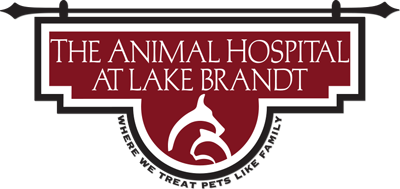FAQ
FAQ
Please refer to this page if you find yourself needing quick answers to some of the most commonly asked veterinary care question topics, including:
If you have any additional concerns that our resources and FAQ may not answer, please do not hesitate to give us a call at (336) 643-2229 or book online.

Allergy FAQs
People aren’t the only ones that have to combat allergies. Many pets suffer from allergies as well. Some pets experience mild symptoms from their allergies while others appear to be in dire distress. At The Animal Hospital at Lake Brandt in Summerfield, we can help diagnose and treat allergies in your pet. These FAQs explain more about the probable causes, symptoms, and treatment of allergies in pets.
Numerous factors can trigger pet allergies. The most common factors are fleas, pollen, dust mites, grasses, weeds, and chemicals in pet or household products. Your pet may also be allergic to ingredients in his food such as eggs, corn, wheat, soy, or dairy products.
Allergy symptoms may vary in pets, depending on the allergen triggering your pet’s allergic reaction. Many pets develop skin problems due to flea or environmental allergies. Symptoms include excessive biting and scratching, red, crusty skin, skin rashes, fur loss, sores, and infections. Your pet’s feet, face, and ears may become red and inflamed. Food allergies may cause wheezing, nasal discharge, vomiting, or diarrhea.
Severe allergy attacks can be hazardous to your pet’s health. Left unchecked, skin problems from environmental or flea allergies can worsen due to your pet constantly scratching his skin. Excessive scratching can lead to open sores and severe skin infections. Constant vomiting and diarrhea from food allergies can weaken your pet’s health. Reporting allergic reactions to your Summerfield vet is the first step towards helping your pet find relief.
After reviewing your pet’s medical history and conducting a thorough evaluation of your kit or pup, your Summerfield vet will have a better idea if your pet is suffering from allergies. If necessary, we’ll conduct skin, blood, and urine tests to confirm our diagnosis. If your pet shows signs of food allergies, we may put your pet on a food elimination diet to determine what’s triggering his symptoms.
Most allergies can be treated by eliminating the allergen from your pet’s environment or diet. If your pet is allergic to chemicals in his shampoo or a household cleaner, changing these items can help alleviate symptoms. Changes in his diet and lifestyle may be in order to avoid triggering allergy symptoms. Medications and ointments can also help give your pet allergy relief.
To evaluate your kit or pup for pet allergies, contact The Animal Hospital at Lake Brandt at (336) 643-2229 today to schedule an appointment with your Summerfield vet. We look forward to meeting your pet care needs.
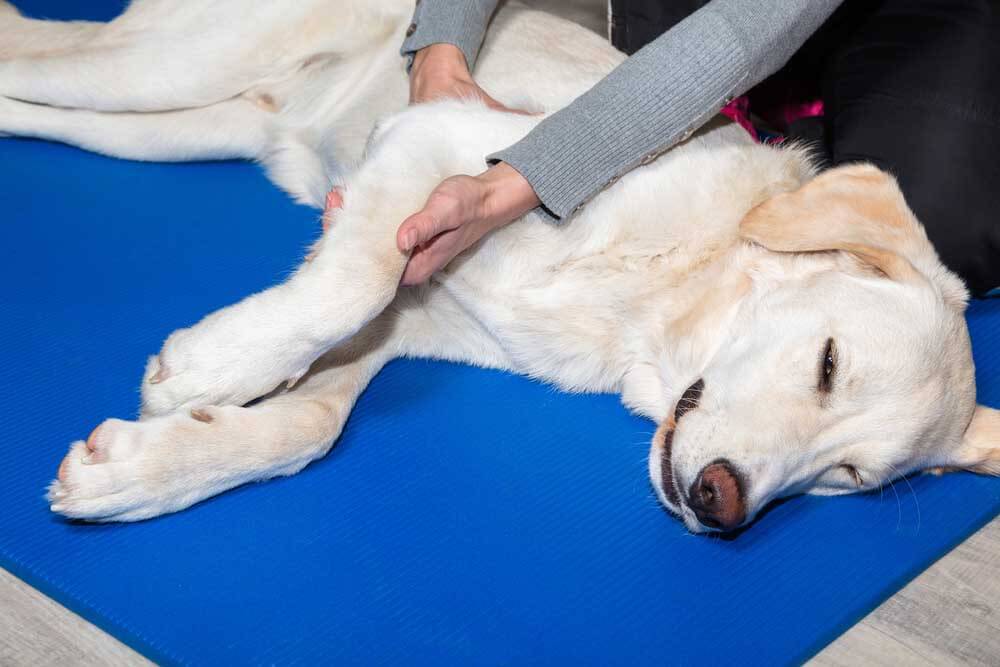
Emergency Care FAQs
Any pet can have an emergency veterinary situation when illnesses suddenly arise, or an accident occurs. At these times, it is important to remain calm and seek out professional veterinary care for immediate treatment. At The Animal Hospital At Lake Brandt in Summerfield, NC, we can help when emergency treatment and pet surgery is needed.
Here are some of the frequently asked questions we receive about emergency care:
Any wound that has severe bleeding is an emergency. Similarly, if your pet is bleeding from an orifice, has severe coughing, trouble breathing or seems disoriented or lethargic, you should seek immediate veterinary care. Seizures, unconsciousness or problems with mobility should have immediate care. Any injury to the eyes should be seen quickly. Unusual urination, diarrhea, or inability to go, may require emergency care. Broken bones, possible poisoning or heatstroke require immediate treatment.
No, you do not need an appointment for a veterinary emergency. However, you should call ahead to alert us, so we can clear the schedule to provide proper time and attention to treat your pet.
Your pet will be brought to an examination area. The vet may order x-rays, ultrasound or blood tests to diagnose the problem. Although some issues are obvious, such as a broken bone or open wound, others may be hidden. Testing helps to reveal what is going on inside the body. Once the vet understands the problem, immediate treatment can begin. Your pet may be kept overnight at the vet for observation or ongoing treatment. Only when the animal has been stabilized will you be able to take him or her home.
You may not be able to be with your pet during every minute of treatment, but you will be given opportunities to visit with your pet. And you will also be informed of all treatments being administered. The vet will be happy to answer any questions you have.
Make The Animal Hospital At Lake Brandt Your Veterinarian For Emergency Care
The veterinarians and team members at The Animal Hospital At Lake Brandt are dedicated to providing quality care for each of our patients in Summerfield, NC, and surrounding communities. We offer many services for pets, including wellness care, preventative care, surgery, dental care, dermatology, orthopedic care, and laser therapy.
You can also call on us for urgent care or emergency care during our office hours. Contact The Animal Hospital At Lake Brandt today at (336) 643-2229 when you need an emergency veterinarian for fast, experienced veterinary care.
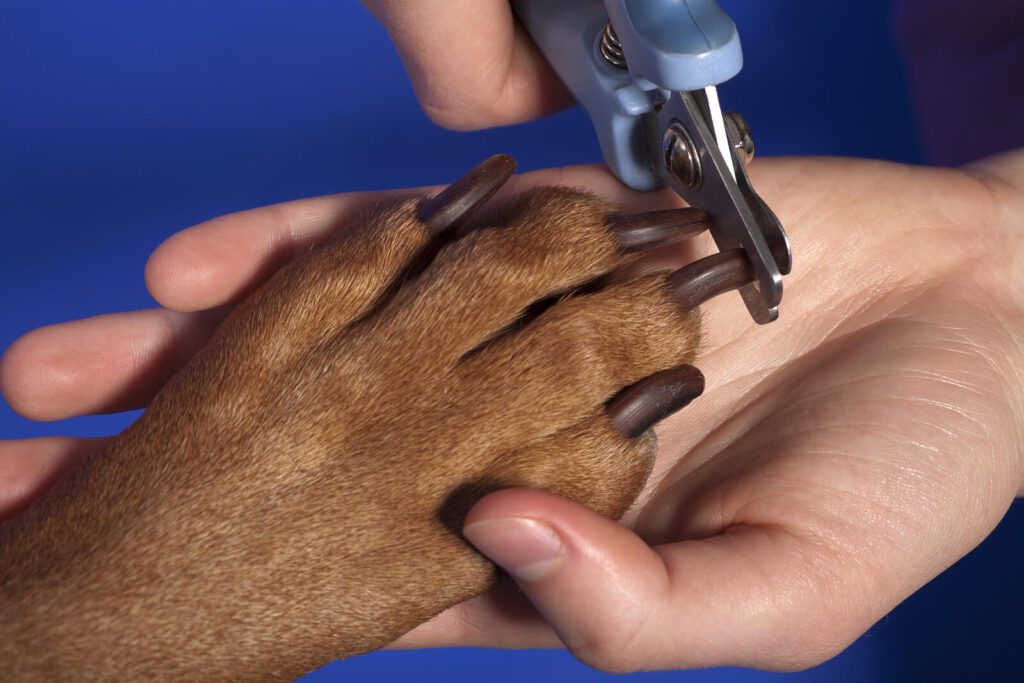
Grooming FAQs
Professional dog grooming will help your pooch look and feel his best. If you’re looking for an animal hospital near me for pet grooming services, The Animal Hospital at Lake Brandt in Summerfield, NC, is the place for you. These FAQs provide more information about our pet grooming services.
It’s good for puppies to start grooming early, around 12-16 weeks of age, or shortly after receiving their vaccinations. This helps your pet become accustomed to the grooming experience. By starting early, your puppy could have fewer behavior problems when grooming as an adult dog.
For non-shedding breeds whose hair is kept in a particular style like Poodles, Terriers, and Bichons, we recommend grooming every 4-6 weeks to keep their fur neat and tidy. Bath pups like Collies, Labs, and Shepherds can be groomed every 6-8 weeks. Once you start grooming sessions, you’ll have a better idea of the look you want for your pet and can make appointments as needed to maintain that look.
In general, dogs can have their nails trimmed every 6 weeks or so.
Dogs are intuitive creatures and easily pick up on your emotions. If you’re anxious or worried about grooming, you may pass those feelings onto your pet. In contrast, if you are calm and reassuring when you drop off your pet, chances are he will be calm as well.
Our groomers have ample experience working with pets of all ages and breeds. We’ll let your pet explore our kennel so he can become familiar with our environment before grooming services begin. We are thorough in the grooming services we provide but never rushed or stressed.
Grooming times vary depending on the services you desire and the breed of your pet. In general, a grooming session involves prepping, bathing, drying, and trimming your pet’s fur and nails. This may take anywhere between 2 to 4 hours, particularly for larger breeds. After checking in and discussing your pet’s needs, we can give you an accurate pickup time for your pooch.
At The Animal Hospital at Lake Brandt, you can combine grooming with quality pet care. Our veterinarian can help make your pet feel at ease as he receives quality grooming care.
For quality dog grooming services you can trust, come to The Animal Hospital at Lake Brandt, the home of your Summerfield, NC, veterinarian. Call us today at (336) 643-2229 to schedule your appointment.

Heartworm FAQs
Heartworm disease is a condition that is caused by tiny worms infesting an animal’s heart and lungs. It can bring about debilitating symptoms and can even cause death. Fortunately, preventative measures are available to keep your pet from getting sick. At The Animal Hospital at Lake Brandt in Summerfield, NC, we offer heartworm testing, prevention, and treatment. Here are a few frequently asked questions about heartworm disease we receive from pet owners.
Heartworms are transmitted through the bite of a mosquito. The mosquito draws blood from an infected animal, then transmits the worms to the next animal it bites. These worms enter the host animal’s bloodstream and travel to the heart and lungs. They then grow and reproduce, causing severe symptoms that affect the animal’s health.
No. Heartworm disease can only be transmitted through the bite of a mosquito that has the worms. A pet cannot “catch” heartworm disease from an infected animal.
In the early stages, you may not notice any symptoms in your pet. However, he will eventually develop a cough, show signs of breathing problems, lose appetite, fatigue, and be reluctant to exercise normally.
Canines are a natural host for heartworm disease. However, cats and ferrets can also contract the disease.
Your vet can use a blood test to indicate whether your pet has heartworms. If the test is positive, your veterinarian will recommend some treatment options for your animal.
Injectable medications to kill the worms, rest, and supportive treatment must be administered to preserve your animal’s life and health. You will be required to limit your pet’s activities for a period. In severe cases, surgery may be necessary to remove the worms from vital organs.
Heartworm prevention medications are available in many pet supply stores that help protect animals from getting this disease. You can choose from an oral medication that is administered monthly or a shot injection that offers protection for six months. Animals should receive protection throughout the year.
Protect Your Pet from Heartworm Disease with Preventative Care
We offer many services for pets, including vaccinations, dental care, preventative care, surgery, orthopedic treatment, and emergency care.
Call The Animal Hospital at Lake Brandt in Summerfield today at (336) 643-2229 for an appointment to have your pet tested and to learn about the best ways to prevent heartworm disease in dogs and cats.

Pet Dental Care FAQs
Good oral health is essential to your pet’s happiness and well-being. Routine dental checkups from your veterinarian in Summerfield can help improve your pet’s oral health. At The Animal Hospital at Lake Brandt, your pet can receive quality dental care. The following FAQs can shed some light on the importance of your pet’s oral health.
Like people, pets need regular dental care to preserve the health and wellness of their teeth and gums. Studies show that most dogs and cats have signs of periodontal disease by the time they’re three years of age. Left unchecked, periodontal disease can eat away at the support structures of your pet’s teeth and lead to tooth loss. If the disease gets into your pet’s bloodstream, it can cause kidney, heart and liver problems. Periodontal disease isn’t the only dental issue pets can develop. Your pet can also suffer from tooth decay, broken or chipped teeth, abscesses, mouth lacerations, and other dental problems.
Your Summerfield veterinarian can advise you on how often to clean your pet’s teeth. In general, it’s good for pets to have their teeth cleaned professionally at least once a year. Cleaning will be done under anesthesia for the comfort and protection of your pet.
- Bad breath
- Excessive salivation
- Loss of appetite
- Difficulty chewing or dropping food from his mouth
- Bleeding from the mouth
- Consistent pawing of the mouth area
Schedule a Pet Dental Exam at Our Summerfield Animal Clinic!
Dental issues won’t just disappear. Early detection and treatment of dental problems is essential to preserving your pet’s teeth and protecting his overall health.
To schedule a dental exam for your dog or cat, contact The Animal Hospital at Lake Brandt, Summerfield, by calling us at (336) 643-2229 today.
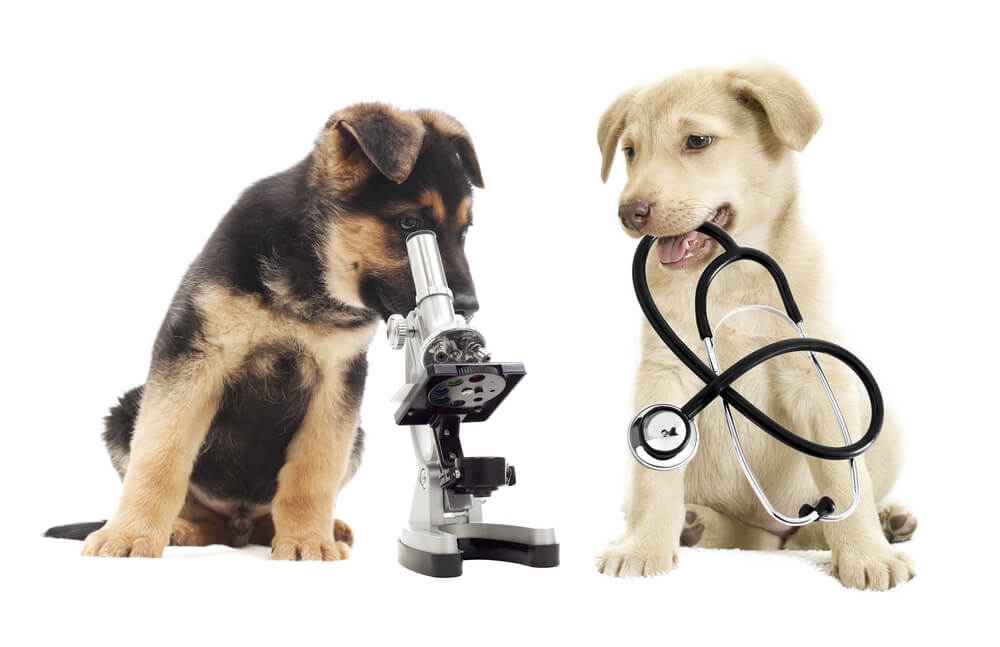
Spay/Neuter FAQs
One of the most important decisions you’ll make as a pet owner is whether to spay or neuter your kit or pup. If you’re on the fence concerning spay & neuter procedures, talk to your Summerfield veterinarian. The following FAQs compiled by The Animal Hospital at Lake Brandt provide greater detail into the benefits of spaying or neutering a dog or cat.
Spay & neuter procedures help prevent unwanted pregnancies and litters. They also eliminate the risk of certain pet diseases, enabling your pet to live a longer, happier life.
Every year, thousands of homeless pets face euthanasia due to not finding people to adopt them. Your pet’s litter only adds to the overpopulation of animals in most cities. Once your pet’s litter grows up, they may have litters of their own, further contributing to the problem. Spay & neuter procedures can help offset this cycle and save lives in the process.
Spaying your female pet reduces her risk of getting breast cancer and totally eliminates the risk of uterine infections. Neutering your male pet reduces his risk of getting prostate cancer and eliminates the risk of getting testicular cancer.
Spay & neuter procedures also help control undesirable behaviors in your dog or cat, especially during mating season. Your female won’t cry or yowl and your male won’t have that strong desire to roam in search of a mate. Neutering your male pet can also make him less aggressive. You may find it easier to bond with your pet as they’ll have less urge to mate, making them more attentive to you.
Spay/neuter procedures are common surgeries performed by most veterinarians today. Although no surgery is totally risk-free, complications from spay & neuter procedures are quite low. Your Summerfield veterinarian will examine your kit or pup before performing the surgery to make sure he has no health issues that could hinder his recovery. The surgery is done under general anesthesia and your pet will be given medications afterward to reduce pain. We suggest pets be kept calm and still for several days following the procedure to expedite healing.
Your Summerfield veterinarian can advise you on when to spay or neuter your pet, taking into consideration his age, breed and physical health.
To schedule a consultation for spaying or neutering your kit or pup, contact The Animal Hospital at Lake Brandt in Summerfield at (336) 643-2229.
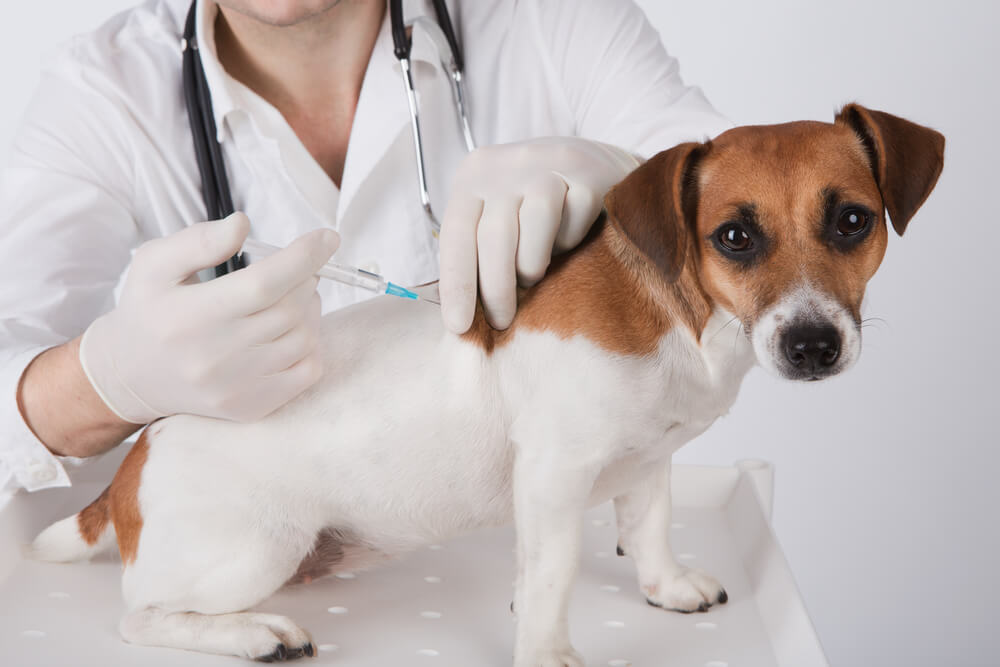
Vaccines FAQs
As a new pet parent, you may have reservations about vaccinating your pet. By learning more about vaccinations and how they work, you can make wise decisions concerning the care of your kit or pup. The answers to the following FAQs from The Animal Hospital at Lake Brandt explain more about vaccines, the protection they offer, and why they’re important to the health of your pet.
Vaccinations are injections that protect your pets against infectious diseases that pose risks to their health. Vaccines stimulate your pet’s immune system to produce antibodies that fight against these diseases to safeguard his health. Some vaccines reduce symptoms of infectious animal diseases while others protect your pet against getting the disease altogether.
Vaccinations safeguard your pet’s life by protecting him against diseases that are hard to treat. Vaccinating your pet against rabies can save his life. Vaccines can also stop the spread of contagious diseases to protect you, your pet, and other people and animals in the community where you live.
Core vaccinations protect your pet against dangerous diseases that pose the greatest risk to your dog or cat’s health. Rabies and distemper are two diseases targeted by core vaccinations. Rabies can be fatal for your pet and is also quite contagious, putting people and other animals at risk.
Non-core vaccinations protect your pet against diseases that threaten his health due to his location or lifestyle. For example, if you live in an area where Lyme disease is prevalent and your pet loves romping in the woods where ticks abound, your Summerfield vet may recommend vaccinating your pet against this disease to keep him safe.
Core vaccines for dogs include rabies, distemper, parvovirus, canine adenovirus, and parainfluenza. Core vaccines for cats include rabies, distemper, calicivirus, herpes, chlamydia, and feline leukemia. In order for vaccinations to be effective, your pet will need initial vaccines and follow-up boosters, according to the vaccination schedule set up by your Summerfield vet.
Puppies and kittens are even more susceptible to diseases as their immune systems are still developing. Baby pets require a series of vaccines starting at the age of 8 weeks and given every 4 weeks until they’re 16 weeks of age. Your veterinary specialist can help you determine what vaccines are best for your baby kit or pup.
To schedule vaccinations for your dog or cat, contact The Animal Hospital at Lake Brandt at (336) 643-2229 today. We look forward to meeting all your veterinary care needs.

Microchipping FAQs
Microchips arose around 50 years ago but they certainly weren’t used in pets at the time. Over the years, it has become standard practice for veterinarians to implant microchips in pets. At The Animal Hospital at Lake Brandt, serving Summerfield, NC, and the general vicinity, our vet offers the option of microchipping your pet and we would like to educate you about the process with some of the common questions we run into about the subject.
A microchip is a small device, about the size of a grain of rice, inserted into your pet, usually in between his or her shoulders. It consists of an electronic chip protected by a glass coating. In order to activate the chip, a scanner must pass over it. The scanner emits radio waves that activate the chip. The only piece of information stored on the chip is an identification number that’s associated with the manufacturer and your pet.
The implantation process is quite simple. You bring your pet in, and our vet uses a needle to insert the microchip. The hypodermic needle used to implant the chip is a tad bit larger than the ones we use for injections. The procedure doesn’t require anesthesia, although you may inquire about a sedative if you feel like your pet may not cooperate. You may also want to get your pet microchipped during his or her spay or neuter or another surgical procedure, so your pet doesn’t feel the injection.
Since the procedure isn’t surgical, your pet shouldn’t have that much pain. Any discomfort your pet has is the same as if he or she were receiving a vaccination. After the procedure, your pet shouldn’t have any issues. However, some pets do experience swelling or other mild symptoms at the implant site.
Part of the process of getting your pet microchipped is inputting information about your pet into the national registry. That information can then only be accessed after scanning your pet and referencing that number in the national database. The information you choose to include in the database is secure and can be used to reunite you with your pet should he or she get lost.
Microchipping For Pets in Summerfield
Schedule an appointment with our veterinarian to get your pet microchipped. You are much more likely to be reunited with your pet if you are separated and he or she is brought in to a shelter or some other veterinary care facility.
Contact The Animal Hospital at Lake Brandt, serving Summerfield, NC, and the sorrounding area, by calling us at (336) 643-2229.
Why Choose Us?

